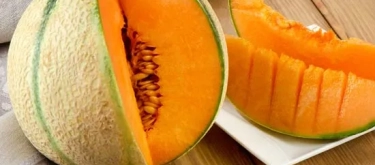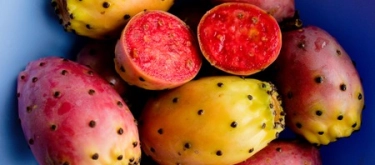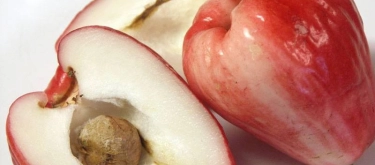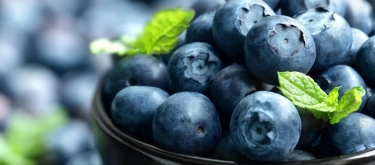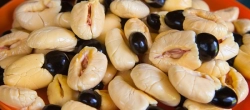Watermelon: Taste, Uses, Benefits and Harm
Watermelon is a beloved fruit known for its high water content, refreshing taste, and vibrant red or pink flesh. Originating in Africa, it has become a staple summer treat around the world, enjoyed for its juicy sweetness and hydrating qualities. This article explores the flavor characteristics of watermelon, its culinary applications, health benefits, and tips for selecting and storing it.

Primary Flavor Characteristics
Watermelon has a naturally sweet, mild flavor with a refreshing quality, making it ideal for hot weather. Its sweetness is balanced by subtle floral and vegetal undertones, which give it a clean, light taste.
Aromatic and Taste Nuances
The aroma of watermelon is fresh and mildly floral, with hints of cucumber-like earthiness. Watermelon’s flavor is not overly complex, allowing its juicy, sugary notes to take center stage, while its high water content gives it a crisp texture.
Scientific Description of Taste and Aroma
- Aroma: Fresh, mildly floral with light earthy undertones.
- Taste: Sweet, watery, and subtly floral with a clean, crisp finish.
- Texture: Juicy, crunchy, and tender with a high water content.
In-Depth Flavor Analysis of Watermelon
Underlying Flavor Notes
Watermelon’s flavor is simple yet refreshing, with several subtle qualities:
- Sweetness: The primary taste is sweet, with natural sugars that vary depending on ripeness and variety.
- Freshness: Watermelon has a refreshing quality, with a high water content that cools the palate.
- Mild Floral Notes: A light floral hint adds complexity, making the fruit taste clean and refreshing.
Impact of Ripeness on Flavor
- Under-ripe Watermelon: Firm, less sweet, and slightly bland, with more vegetal notes.
- Fully Ripe Watermelon: Juicy and sweet, with a delicate floral aroma and balanced freshness.
Textural Qualities
Watermelon is known for its crunchy yet juicy texture, providing a satisfying bite that is both refreshing and hydrating. The flesh is tender and filled with water, giving it a crisp mouthfeel.
Culinary Uses of Watermelon
Primary Uses
- Fresh Eating: Watermelon is typically eaten fresh, either sliced, cubed, or scooped, for a naturally sweet snack.
- Salads: Watermelon pairs well with ingredients like feta cheese, cucumber, and mint in salads, adding a sweet contrast.
- Juices and Smoothies: The high water content of watermelon makes it ideal for juicing, blending into smoothies, or making refreshing watermelon lemonade.
- Grilled Watermelon: Grilling slices of watermelon caramelizes its sugars, creating a smoky, sweet flavor ideal for savory dishes.
- Sorbets and Popsicles: Watermelon’s sweet, refreshing taste is perfect for frozen desserts like sorbets and popsicles.
Ideal Pairings for Watermelon
- Herbs: Mint and basil enhance watermelon’s freshness and add a cool, herbaceous note.
- Cheese: Salty cheeses like feta or halloumi contrast with watermelon’s sweetness, creating a balanced flavor profile.
- Citrus: Lime and lemon add acidity, enhancing the fruit’s sweetness in salads and drinks.
- Spices: Chili powder, salt, and black pepper bring out watermelon’s natural sugars and add a savory kick.
- Cucumber: The refreshing, mild taste of cucumber complements watermelon in salads and cold soups.
Health Benefits of Watermelon
Key Nutrients and Benefits
- Vitamin C: Watermelon is a good source of vitamin C, which supports immune health and skin vitality.
- Vitamin A and Lycopene: These antioxidants help protect cells from damage and support eye health.
- Hydration: Watermelon is approximately 90% water, making it an excellent choice for hydration.
- Fiber: The fiber content in watermelon aids in digestion and supports gut health.
- Amino Acids: Watermelon contains citrulline, an amino acid that may support heart health by improving blood flow.
Potential Precautions
- High Natural Sugar Content: Though low in calories, watermelon has natural sugars, so those monitoring sugar intake should consume it in moderation.
- Diuretic Properties: Due to its high water content, watermelon may have a mild diuretic effect, so it’s best enjoyed in moderation.
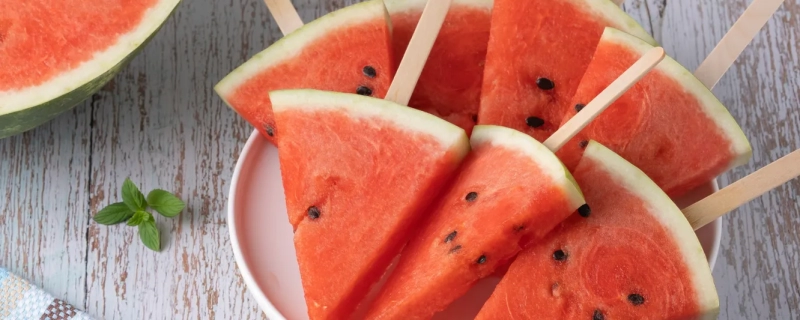
Tips for Choosing and Storing Watermelon
How to Choose Quality Watermelon
- Sound Test: Tap the watermelon; a ripe watermelon will have a hollow sound, indicating juiciness.
- Color and Shape: Look for a uniform shape and a creamy yellow spot on the rind, which indicates ripeness.
- Weight: Choose a watermelon that feels heavy for its size, as this indicates a high water content.
Storage Recommendations
- At Room Temperature: Whole watermelons can be stored at room temperature for about a week.
- In the Refrigerator: Once cut, store watermelon in the refrigerator in an airtight container for up to three days to maintain freshness.
- Freezing: Watermelon can be cubed and frozen for smoothies, though it may lose its crunchy texture when thawed.
Fun Facts About Watermelon
- African Origin: Watermelon is believed to have originated in Africa, where wild watermelons still grow.
- Multiple Varieties: There are over 1,200 varieties of watermelon, including seedless, yellow, and mini varieties.
- Hydration Fruit: Due to its high water content, watermelon has been traditionally used as a natural source of hydration.
